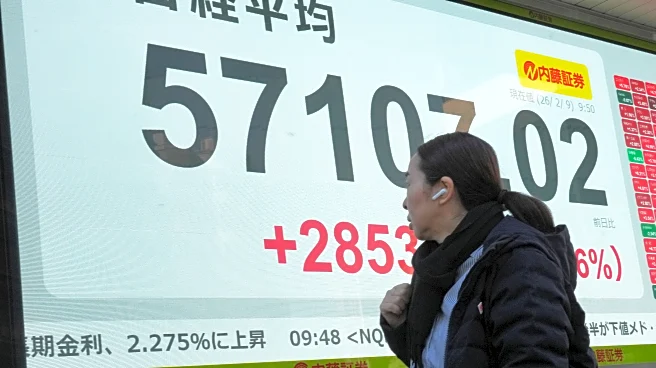What's Happening?
Brandon Sywassink, general manager of Manna Ranch in San Joaquin County, California, experienced a significant financial setback when a local winery rejected his truckloads of freshly picked grapes. The
rejection was due to the grapes not meeting the required sugar content, known as 'brix,' which measures the potential alcohol content in wine. Sywassink's grapes measured 23.9 brix, just shy of the 24 brix required by his contract. This minor shortfall resulted in the loss of an entire year's income, as the grapes, valued between $10,000 and $15,000, were discarded. The Lodi Winegrape Commission notes that such rejections are becoming more common as large wineries impose stricter quality standards while simultaneously importing cheaper wine from overseas.
Why It's Important?
This incident highlights the growing challenges faced by small-scale farmers in California's wine industry. The increasing quality demands from large wineries, coupled with the influx of cheaper foreign wine, are putting significant pressure on local growers. Farmers like Sywassink, who rely on a single buyer, find themselves vulnerable to the whims of larger companies. The financial impact is severe, as farmers typically receive only one paycheck per year, and a rejected crop means no income until the next harvest. This situation underscores the need for a more balanced relationship between growers and wineries, potentially through a code of conduct that ensures fairer treatment and more predictable income for farmers.
What's Next?
The Lodi Winegrape Commission is advocating for changes to create a more equitable partnership between growers and wineries. This could involve establishing a code of conduct to protect farmers from the financial risks associated with strict quality standards and reliance on single buyers. Additionally, there may be increased discussions within the industry about the impact of foreign wine imports on local producers. Stakeholders, including policymakers and industry leaders, may need to address these issues to ensure the sustainability of small-scale farming operations in California.
Beyond the Headlines
The situation reflects broader economic challenges in the agricultural sector, where rising input costs and fluctuating market demands are squeezing profit margins. The USDA reports a 23% decline in net farm income in 2024, with significant increases in costs for fertilizer, seed, and fuel since 2020. These economic pressures, combined with the specific challenges in the wine industry, highlight the precarious nature of farming livelihoods and the need for systemic support to ensure the viability of small farms.










